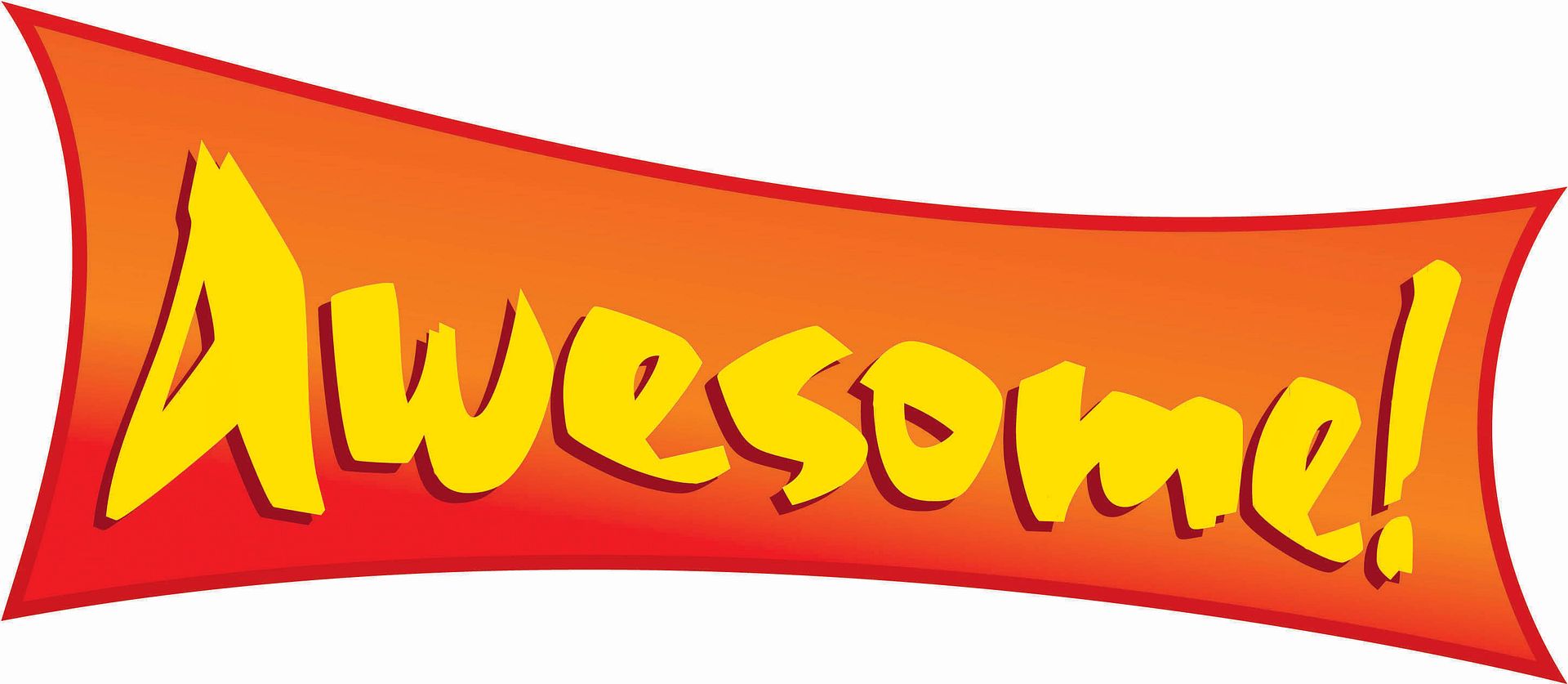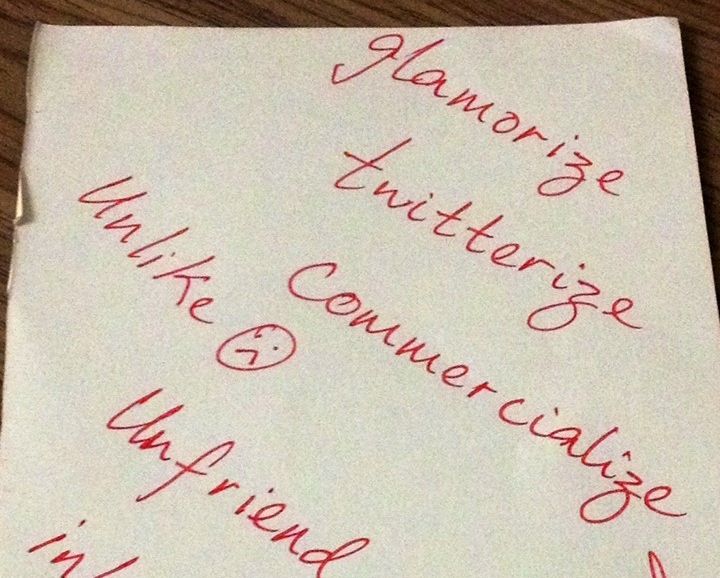Submitted by Ruby Sahay on Tue, 08/12/2014 - 10:12
Posted in

The Awesome Awfulness of Awesome
As Clara and the prince glided gracefully across the stage in the Snow scene of the Nutcracker ballet, I watched with awe-inspiring joy, and filled with an overwhelming admiration I spontaneously exclaimed to myself, “awesome!”
Enchanted by the weightlessness, the nimble moves and the crisp, clean footwork of the performers, the audience broke into rapturous applause. Later, outside the theatre, praises for the ballerinas filled the air. Some appreciated ardently the prince’s athletic strides and others applauded the angelic and poised Clara, but a section of the audience undiscerningly chimed in with the broad, hold-all and recyclable superlative, “awesome!”
The ever-changing English language and its adaptability to newer expressions have aided manifold dictionaries. To that end, awesome, the most flexible of words, is ‘awesomely’ expanded to include a huge list of contexts. While the term conventionally implies an overwhelming feeling of reverence, admiration or fear, the same is now extensively used as a slang meaning very impressive.
And so, the opening of the Commonwealth Games prompted a dot-com to report: John Barrowman Opens Glasgow 2014 With Awesome Selfie.
Earlier, when Novak Djokovic savored his Wimbledon win over Roger Federer by chewing on blades of grass from the club’s turf, stunned viewers bellowed the superlative almost rhythmically, ‘awesome!’.
Seated there, in the Royal Box, The Duchess of Cambridge and international style icon Victoria Beckham looked every bit awesome.
“But this is an awesome country with awesome potential...” said a freshman
American lawmaker in an embarrassing faux pas recently when he asked a couple of Indian-origin US officials about 'your country'.
A food blog reads: 10 awesome grilled sandwiches to try.
There’s this funny infographic about fifty awesome YouTube facts and figures. You should check that out!
And, if that is not enough, here’s a quote that chokes with the buzzword, “Awesome people have awesome attitudes and do things awesomely.”
Do I see you gagging already?
Wait, still to come are those that pepper everyday conversations: Germany vs. Argentina- what an awesome game that was!
The Fault in our Stars- you’ve got to watch that...Shailene Woodley is awesome!
By the way, have you tried Quinoa salad? It’s awesome!!
We went shopping for draperies and walked into a store that had the most awesome collection.
Our son’s new football coach is awesome!
We had an awesome trip to Monaco.
Your enchiladas were awesome; mine always unravel.
There were an awesome number of guests at my friend’s wedding.
The list, of course, is endless (and not awesome)!
The urban dictionary defines awesome as a 'sticking plaster' word used by Americans to cover over the huge gaps in their vocabulary. It is one of the three words which make up most American sentences.
Are you nodding in agreement?
But why do we freckle our conversations, casual texts and chats with a clichéd expression? It’s a pity that the word which was once used to express genuine awe has now become an all-inclusive, blanket term littered all over off-the-cuff prints. What an awesome use of the hackneyed!
If you think the use (overuse or even misuse) of awesome makes you look cool, let me warn you, it doesn’t! You sound cliché-ridden! In case you’re trying to emulate the kid next door, grow up and get a life! There’s a huge list of words out there that can enliven your conversations to exactness. So, next time a friend impresses you with a prowess or an accomplishment, do not use a cursory and thoughtless awesome to laud him. It can beoutstanding, astounding, mind-blowing, sensational, fabulous, fantastic, magnificent, incredible, marvelous, overwhelming, phenomenal, remarkable, stupendous, fascinating or unbelievableplus a lot more. Say anything more original or relevant than the moth-eaten awesome
Have you realized that only when you stop exercising your brain cells, awesome comes to your rescue as a filler to communicate your idea of excellence? In the process, however, you miss out on the precision of expression and end up sounding repetitious.
That’s the reason the ballerinas who were every bit graceful, energetic, nimble, poised, petite, and angelic, and who enthralled the audience with their fascinating performances, were effortlessly strewn together by many viewers in a catchall expression- awesome. A whole bundle of superlatives were tragically weighed down by a run-of-the mill expression!
Needless to say, everything that is ace is not awesome. All the more, language lovers are sick of hearing people calling things awesome. Having said that, I sheepishly admit that I am as blameworthy of hinging on the word as you are. It is, therefore, necessary that we tutor ourselves on more suitable adjectives and do away with our ignorance of alternatives.
Nevertheless, instead of ostracizing the word completely, let’s restrict its use to express real awe, the kind we may experience on our visit to the Victoria Falls on the Zambezi River in Southern Africa, where ‘the mist from the falls normally rises 1,300 feet and on nights with a full moon can cause a “Moonbow” ’. Undeniably, something as breathtaking and as jaw-dropping as that has got to be awesome.
What do you think?
Now, do you feel the need to credit your friend’s remarkable feat with something more suitable than awesome?
Don’t you wish to supplement your vocabulary with an assortment of words that you can use more precisely to fit the context and thereby appear less corny?
And last but not least, isn’t the overworked awesome entitled to better deal?
If you subscribe to the above and wish to sanitize your reviews, comments and statements hereafter, without ceasing to glorify the glorious, get yourself thinking and chattering off autopilot... The outcome, I assure you, is going to be awesome oops, striking!
-------------------------------------------------------------------------------------------------------
About the column : I am no literary scholar, neither a linguist nor a grammarian, but one amongst you, who uses everyday English. It is my love for the language that enables me to observe keenly the trends in modern English. My column WordStock is an attempt to document the visible communication pattern and trends in the English language that we use as a tool to express, connect and correspond. No highbrowed, scholarly stuff but some salient peculiarities and quirks that mark regular expressions. It is all in good humor, about you and me, and the varied ingredients that constitute our language. So, stay on, enjoy the vignettes, and feel free to share your views.
About the Author :
About the author: The fragments that make up the world, its people and the impression they leave on her, prompts Ruby to share with you bits and pieces that you may find interesting or informative or both. Her reflections are a mosaic of personal and shared flavors. The content varies, but they're all about people-people like you and me, our footprints and her impressions, our pictures and her albums. She invites you to dip into her flavors, though you have the right to relish or refuse. Should you decide to scratch the surface, agree to disagree with her, but a thumbs up now and then won't hurt!
Photo courtesy: Google Images









 "Well, I googled the recipe for that perfect guacamole!" Now how's that? Did you 'Google' the recipe or did you 'search on the Internet'? The latter may appear a term conventionally preferred but the former increasingly trends in usage. And despite the fact that one may use several other search engines to look up a fact, one simply ''googles'' it. Interesting, isn't it? One of the most flourishing developments in modern communication is the burgeoning use of verbalizing.
"Well, I googled the recipe for that perfect guacamole!" Now how's that? Did you 'Google' the recipe or did you 'search on the Internet'? The latter may appear a term conventionally preferred but the former increasingly trends in usage. And despite the fact that one may use several other search engines to look up a fact, one simply ''googles'' it. Interesting, isn't it? One of the most flourishing developments in modern communication is the burgeoning use of verbalizing.

Loved it. Will keep coming
Many thanks, Sonali!
Now now
:D
Timelining
Mona Vijaykar